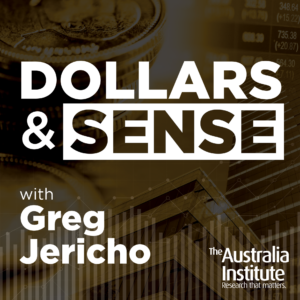Global Financial Crisis 15 Years On: What Have We Learned? with Wayne Swan | Summer Series
Our summer podcast series brings you some of the best conversations from our webinars and live events in 2023.
On 15 September 2008 came the collapse of Lehmann Brothers, the largest bankruptcy in US history. This set off a chain reaction and had a massive impact on the Australia financial system and economy. Across the northern hemisphere the GFC became known as the Great Recession. But in Australia the economy was spared the large rises in unemployment that occurred in the USA and Europe as well as the collapse of major financial institutions.
This was recorded on Friday 15th September 2023 and things may have changed since recording.
australiainstitute.org.au // @theausinstitute
Guests:
Wayne Swan, National President of the ALP, former Labor Member for Lilley and former Deputy Prime Minister and Treasurer of Australia // @SwannyQLD
Greg Jericho, Chief Economist, the Australia Institute and the Centre for Future Work // @GrogsGamut
Host: Ebony Bennett, Deputy Director, the Australia Institute // @ebony_bennett
Producer: Jennifer Macey // @jennifermacey
Edited by: Emily Perkins
Theme Music: Pulse and Thrum; additional music by Blue Dot Sessions
Between the Lines Newsletter
The biggest stories and the best analysis from the team at the Australia Institute, delivered to your inbox every fortnight.
You might also like
BREAKING: Australia’s housing market still cooked
Even the Mathias Cormann-led OECD says the capital gains tax discount and negative gearing are a problem.
No signs of heat going out of Coalition’s summer of discontent
Sussan Ley started 2026 much like she ended 2025 – extending her tenuous hold on the Liberal Party leadership by politicising tragedy.
Super hysterical: the ludicrous beat-up over superannuation tax changes
Superannuation is meant to help all Australians have a comfortable retirement, not help the very wealthiest pay less tax.





